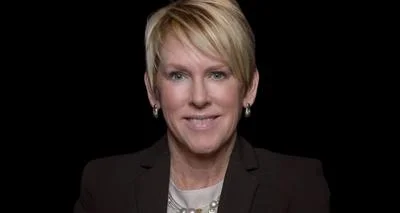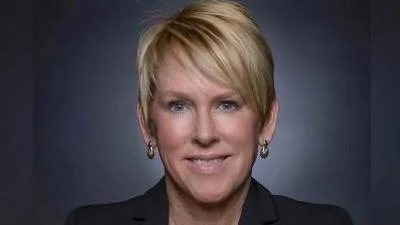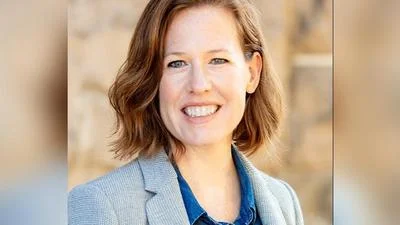Katherine P. Frank, Chancellor at University of Wisconsin-Stout | Official website
Katherine P. Frank, Chancellor at University of Wisconsin-Stout | Official website
During the 2024-25 academic year, Professor Wei Zheng from the University of Wisconsin-Stout’s plastics engineering program undertook sabbatical research focused on sustainability in plastics. Her work centered on studying the biodegradation of plastic materials and exploring recycling methods for thermosetting plastics.
Zheng collaborated with students Molly Garber, a double major in mechanical and plastics engineering from Blaine, Minnesota, and Madeline Candline, a chemistry major from Pooler, Georgia. Together, they designed and built a biodegradation system, calibrated it using cellulose, and tested a biodegradable polymer. They also scaled up synthesis to produce enough “green” thermosetting resin material for reverse crosslinking experiments.
“The project aims to benefit not only UW-Stout students but also to positively influence the general public’s perception of plastics,” Zheng said. “I hope this work will have a multi-level impact on the field of plastics engineering, quantifying the biodegradation of environmentally friendly materials and developing viable methods for reverse crosslinking to address the critical needs in today’s plastics industry.”
Biodegradable plastics are often made from renewable resources and can help reduce landfill waste as well as greenhouse gas emissions. This can lead to fewer microplastics in the environment. Thermosetting plastics present recycling challenges because once cured by heat-induced chemical reactions, they cannot be remelted or reshaped. Researchers like Zheng are investigating reverse crosslinking processes that could allow these materials to be recycled.
Zheng intends to incorporate her findings into UW-Stout’s curriculum and create outreach materials promoting sustainability.
She noted some setbacks during her research related to removing water byproduct during synthesis but was able to supervise a successful capstone project on molding common plastic materials despite delays. “In the meantime, I had the opportunity to supervise a capstone project, which involved the characterization and molding of a common plastic material. The group investigated the pressure dependence of viscosity and its impact on molding and simulation,” she said. “The project was highly successful and received enthusiastic praise from our advisory board.”
Garber described working with Zheng as transformative: “Working with Wei and Madeline was one of the most transformative parts of my college experience,” Garber said. “The research challenged me to think critically, collaborate effectively, and approach problems with curiosity. What made it especially valuable was the hands-on nature of the work. Being able to identify issues in real time, make adjustments, and witness the results firsthand gave me a deeper understanding of the process and a stronger sense of ownership. I not only deepened my understanding of the subject but also grew personally and gained skills that I know will carry me far beyond the classroom.”
Candline highlighted how interdisciplinary research broadened her perspective: “This experience truly shows the importance of a polytechnic education,” Candline added. “Most of my chemistry classes have focused on how different substances interact with each other and their applications within the confines of chemistry. With this project, I was given the opportunity to apply my knowledge of chemistry to real-world problems outside of my own field of study. It was really interesting to see the connection between plastics and chemistry. This experience helped me learn more about potential directions my degree can take me.”
Candline has also worked with Chemistry Professor Ana Magdalena Vande Linde on research projects that provided opportunities for national conference presentations alongside other undergraduate researchers.
“Working on research with faculty has been beneficial to my college career. Research gives students hands-on learning opportunities and helps build lasting connections with fellow undergraduate researchers, faculty and professionals in the field,” she said. “If anyone is ever debating if they should join a faculty member for research, I always say to do it. You never know where the opportunity will take you, and no matter what, you will learn something from the experience.”
Candline presented her own research at NCUR 2024 in Pittsburgh—an event recognized as one of largest undergraduate symposiums nationwide—where several UW-Stout students participated.
UW-Stout’s Robert F. Cervenka School of Engineering offers five ABET-accredited programs including computer engineering; electrical engineering; engineering technology; packaging; as well as an online or campus-based master’s degree in manufacturing engineering.
Graduates from UW-Stout's plastics engineering program report an average starting salary around $70,000 with full employment rates according to data collected by Career Services’ First Destination Report (https://www2.uwstout.edu/content/careerservices/fdr/).






 Alerts Sign-up
Alerts Sign-up